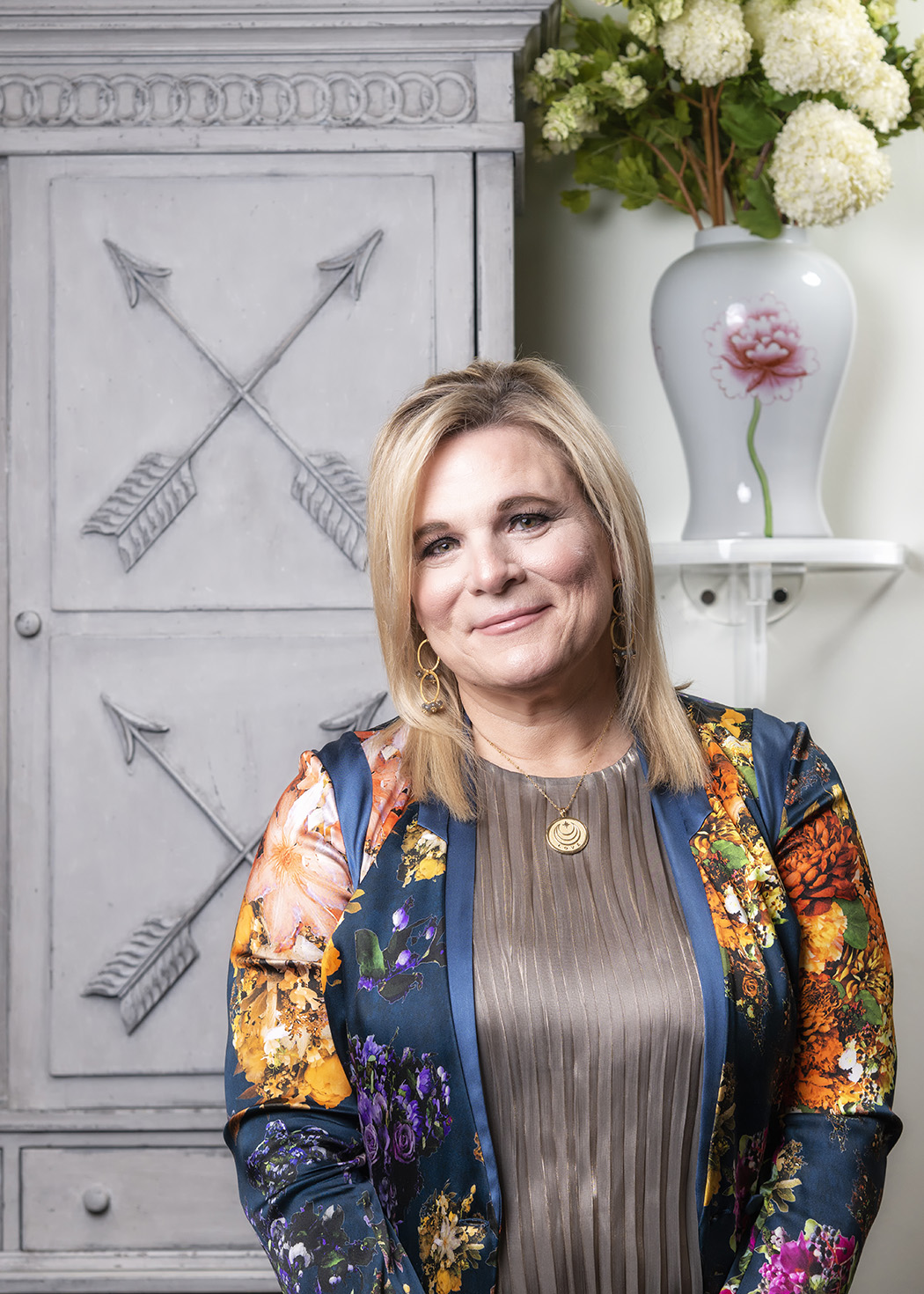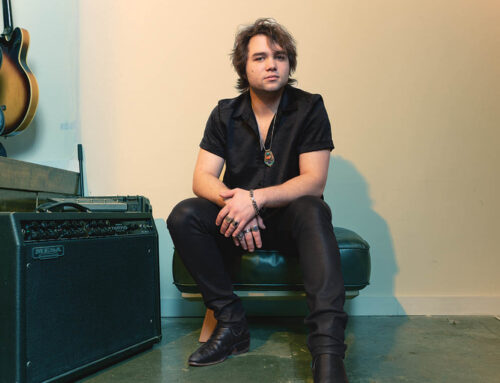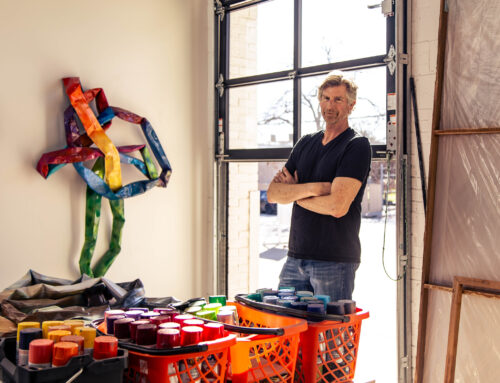
Photo credit by Danny Fulgencio
Michelle Staubach Grimes, daughter of Dallas Cowboys legend Roger Staubach, is a 1986 Ursuline graduate who went to law school at Catholic University. She is the author of two children’s books, “Where is Pidge?” and “Pidge Takes the Stage.” She lives in Preston Hollow with her husband, three children and two dogs. Pidge was her mother’s nickname as a child. Grimes, who struggles with depression and anxiety, has recently gone public to try to remove the stigma of mental illness. She says her father’s words got her through dark times: “There is nothing you can ever do that would make me stop loving you.” She currently co-hosts a podcast “Legal 2 Laugh.”
Tell me about “Legal 2 Laugh.”
One of my hilarious Ursuline best buddies is a lawyer. My friend is a gyno. I thought, “There’s really no funny lawyer stuff.” We film it in my office, and it’s produced by ON-AIR MEDIA. The content comes from the 50 dumbest laws in each state. For example, can a man sell his wife’s hair? Could my husband sell my extensions?
What’s the inspiration for your books?
The first book is about a middle child in a big family. Pidge gets left at a restaurant and stuck in the laundry shoot, which really happened to one of my kids’ friends. Then she realizes how much she’s loved and how important she is. The core of the story is finding your purpose, being kind and thanking people. The second book is about trying new things. She learns to sing for the school musical. I use one of my dad’s quotes: “Unspectacular preparation equals spectacular results.”
What are your memories of Ursuline?
We had a group that was very close and a great principal. I didn’t realize what I was going through at the time in terms of depression. Girls from the Ursuline ‘86 class are some of my besties. When I walk the halls, I feel like it’s home.
What was it like growing up as the daughter of a famous athlete?
In the ’70s, it was easy. We lived in Richardson. Anybody could knock on our door. You can’t do that now if you’re the daughter of a Cowboys quarterback. There are more positives than negatives. Football was not our whole life. Dad is humble. He was home at 5 p.m. and he took us to school. He and my mom are a strong couple and so committed to the family.
When did you realize that you had depression and anxiety?
In first grade I had obsessions — about death — and I’d cry about it. When my dad was at training camp, I’d cry every night for a month. In fifth or sixth grade, I was convinced I had a brain tumor. I was OCD. I’d wash my hands and pray over and over. My parents took me to a psychologist, and my sister helped me with my homework.
When did you confront it?
In my early 30s after I’d had my last child, my internist said, “You really need to address this.” I started seeing a psychiatrist and taking medicine. Sharing stories and erasing the stigma are so important. My story is still unfolding, but I’ve been through enough now that I have a pretty good grasp. You’re never cured.
Why are you speaking out now?
I’m 51 now, and I wasn’t totally public. Nearly 60% of adults with depression show signs in adolescence. On Mental Health Day, I posted my experience on social media. During the summer of 2017, I was really catatonic, and I was in electroconvulsive therapy. I was sick, and you can’t hide that. I should have gotten my kids more help. I don’t fear losing a job. I have the financial resources to get help. I’ve got a supportive family.
How did your dad react?
He asked, “What could we have done more for you?” I said, “Dad, you didn’t know.” I failed to explain the mental health world to them. People are craving for people to share their stories. That’s how we connect. If I help one person, I’ve lived a good life. People need help, and they need to know that you can get through it.
What kind of feedback did you get?
It was nothing but positive. I received a lot of requests to meet with mental health groups. But I don’t want it to consume my whole life.
What’s the best advice you’ve ever received?
The best advice came from my dad. I got in some big trouble in high school. I wasn’t the most obedient. The first thing my dad said to me was, “Michelle, there is nothing you can ever do that will make me stop loving you.” But then we had to address the situation, and he taught me unconditional love.
What advice would you give to your younger self?
There is a therapy where they ask you to post a picture of yourself as a child. How would you talk to that younger child? You wouldn’t tell her she’s a jerk or an idiot. I would be kinder to myself and love myself.






